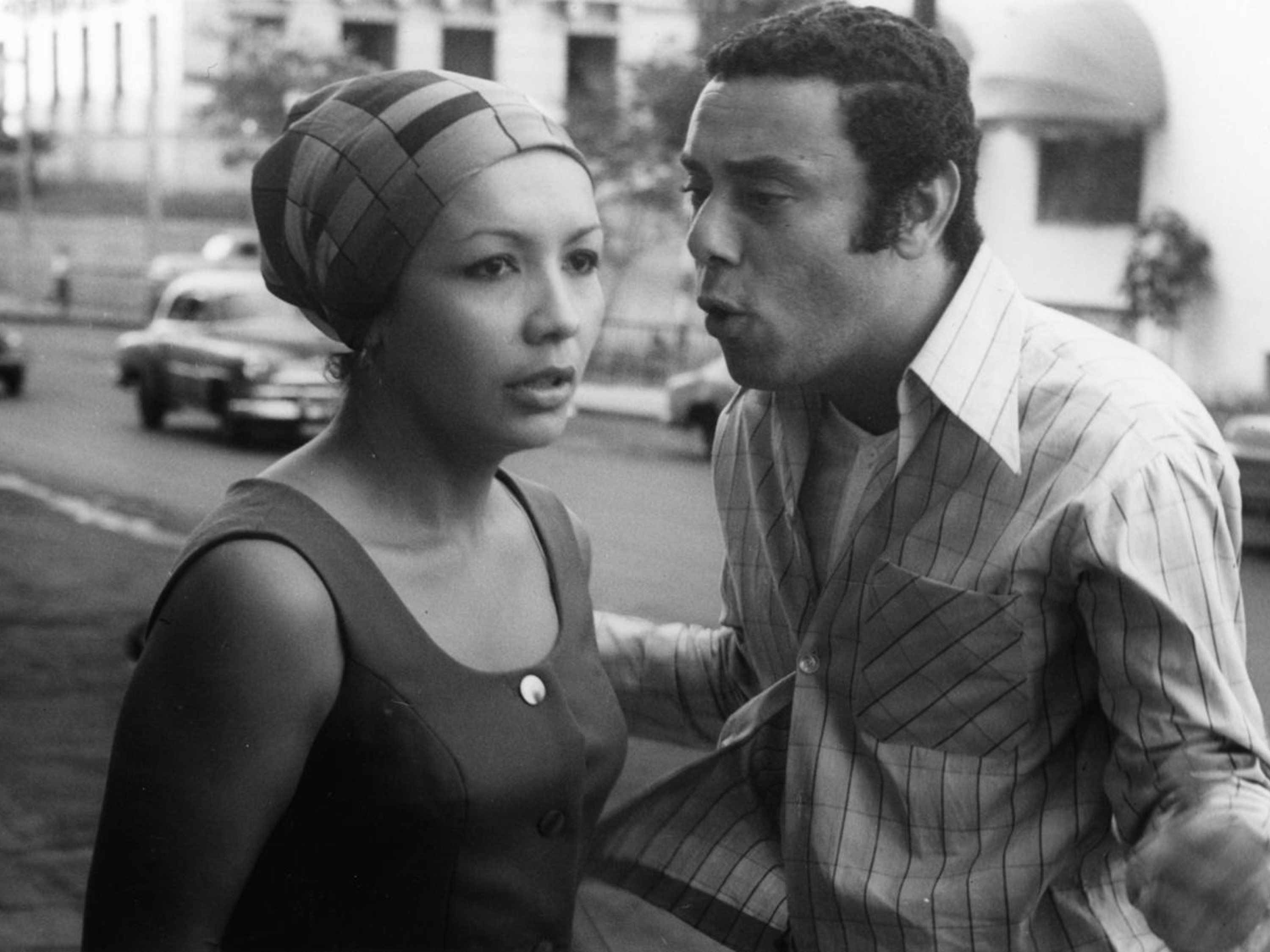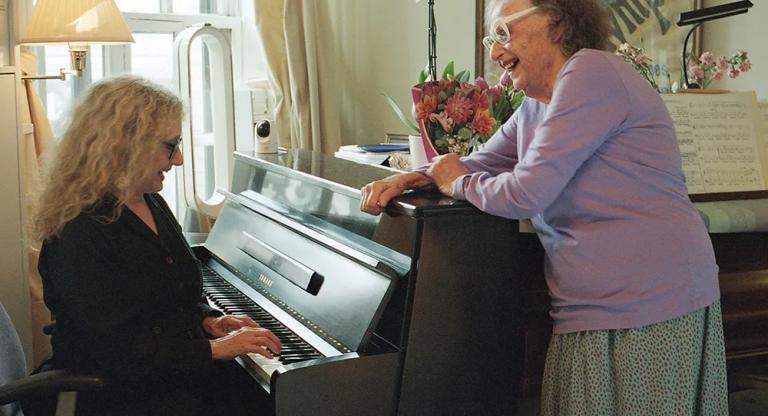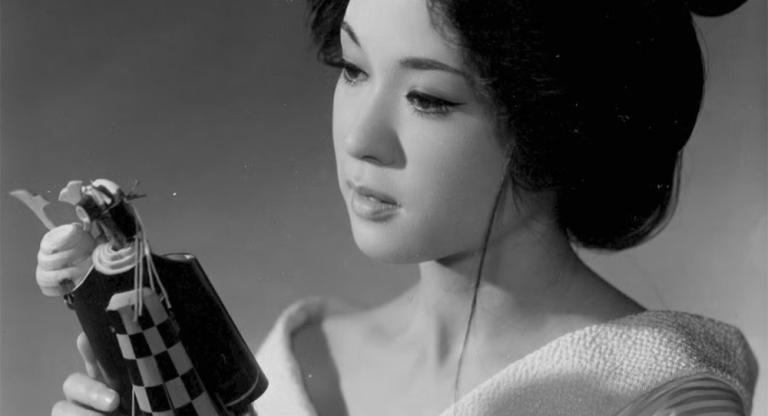The concerns of Sara Gómez's De Cierta Manera are, I suppose, the concerns of most people: love and revolution. The Cuban filmmaker’s sole feature is slugged as a film "about people, some real and some fictitious." This line is left vague in a film that speaks with both the didacticism of a documentary and the whimsical notes of fiction. De Cierta Manera feels raw, shot on a handheld camera, and inhabited by real lives and real passions, fueled by the engine of Gómez’s own revolutionary fervor for representing all the people who, in spite of serious societal change, have still been overlooked by their own country.
The film is set in Las Yaguas, a town within Havana that has been slow to adopt revolutionary reforms. The problem, the film explains, has to do with the "subconscious habits" developed under the burdens of capitalist society. The residents of Las Yaguas operate with some sense of scarcity, a scar left by the poverty and destitution their community has seen. Yolanda (Yolanda Cuéllar) has change in her heart as she moves to Las Yaguas to become a school teacher. She's twenty-five years old, hot-headed, and stubborn about her beliefs—still, affecting the souls of her students proves to be tricky.
The new teacher becomes the talk of the town, and especially for Mario (Mario Balmaseda), born and raised in Las Yaguas. He tells Yolanda that he had tried to leave Las Yaguas, but to the disappointment of his father, could not finish school, and instead served in the military. This he won't tell Yolanda, but perhaps she can sense it: He feels stuck. Mario is possessed by this notion that he must be a man, whatever that might mean. Yolanda, who is adept at holding her expression firm, even when her heart feels the opposite, introduces herself as "independent" — a very different thing, she has him know, from being "alone." Mario tells Yolanda that he reminds him of a sparrow, "the saddest bird." In other words, he is smitten.
They begin a relationship that quickly becomes turbulent. Or perhaps it never starts. Mario can't admit to anyone else that he and the beautiful new teacher have a relationship, caught between his feelings for Yolanda and loyalty to the men in his life. "The teacher's brainwashed you, turning you into a young communist," one of his friends tells him. Meanwhile, Yolanda struggles with her own students, who are willfully defiant to her. The mother of a particular problem child, Lázaro, tells him that there's not much more she can do: The fathers of her five sons, including Lázaro, have left her, and she must work all day and night in order to make a living. When Lázaro is sent to jail for petty crime, a government official tells Yolanda that what the young boy needs is "affection," and somebody who loves him."
In finding its focus in the affliction of working-class women and the Afro-Cuban community, De Cierta Manera seems to argue that there is more to revolution than reforms and political action. There must, too, be a revolution in the heart. Scrambled by his growing feelings, Mario seeks the counsel of Guillermo, a singer, who advises that Mario must leave—not Yolanda, but "the world that he knows." For that, Guillermo tells him, Mario needs courage. Mario appears overcome, but still silent, as he listens to Guillermo croon, "Who am I / The man who loves you," with Yolanda next to him. After making love, Mario asks Yolanda what she sees in him. "A man," she teases: "A man nobody else sees or knows."
De Cierta Manera screens this evening, June 17, at Metrograph. It will be be followed by a conversation with the documentary filmmaker Sisa Bueno and the performer Yesenia Selier, moderated by the scholar Juana Suarez.



